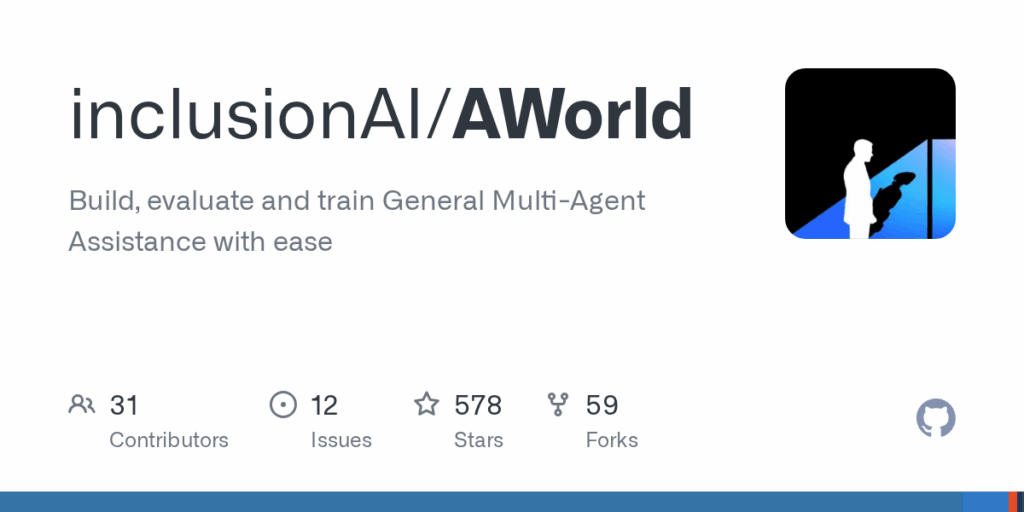AWorld
Basic Information
AWorld is an open source Python framework and runtime designed to build, orchestrate, train, and evolve AI agents and multi-agent systems with an emphasis on continuous self-improvement. The repo supplies abstractions for individual LLM-based agents, swarms and team topologies, runners for synchronous and streamed execution, and tools for integrating external MCP services and memory stores. It targets researchers and developers who want to prototype agent behaviors, run high-concurrency rollouts, synthesize training trajectories and function-call datasets, or deploy agent-driven web applications. The project includes examples and tutorials (BFCL, GAIA, IMO) and supports multiple LLM and embedding providers, vector stores, and cloud-native distributed training scenarios. Quickstart code and scripts show how to define agents, configure providers, run local web or API servers, and integrate memory and tool services for production-like workflows.








